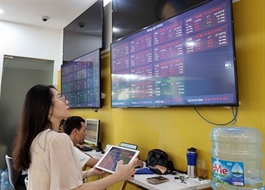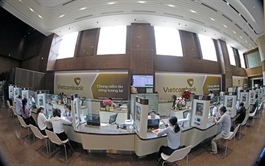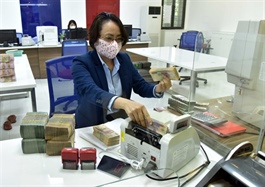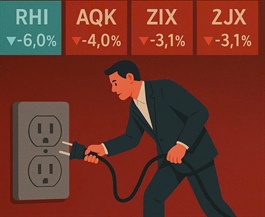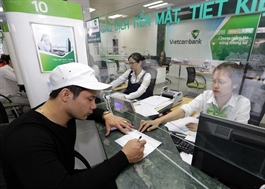Balancing strict regulations with investment demands to revive Việt Nam's IPO: experts
Balancing strict regulations with investment demands to revive Việt Nam's IPO: experts
The primary reason for this downturn appears to be the country’s stringent listing requirements, which, while aimed at maintaining market stability and protecting investors, have also made it difficult for companies, especially in the technology sector, to go public, said experts.
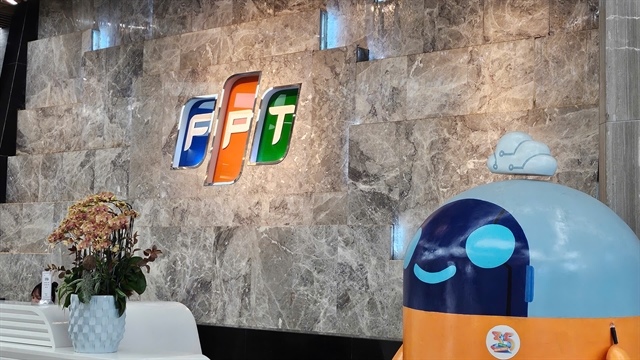
Inside the headquarters of FPT in Cầu Giấy District, Hà Nội. — VNS Photo Ly Ly Cao |
Over the past few years, Việt Nam’s stock market has seen a notable decline in large-scale Initial Public Offerings (IPOs), raising concerns about the development of the capital market.
The primary reason for this downturn appears to be the country’s stringent listing requirements, which, while aimed at maintaining market stability and protecting investors, have also made it difficult for companies, especially in the technology sector, to go public, said experts.
At a recent financial conference in HCM City, Don Lam, CEO of VinaCapital, highlighted the clear reduction in IPO activity in Việt Nam.
According to Lam, IPO values have only ranged between US$15 million and $70 million annually since 2019. This marks a significant drop from the robust years before, where IPO values ranged from $500 million to $2.6 billion.
The scarcity of major IPOs has had a noticeable impact on Việt Nam’s stock market, leading to declining interest from foreign investors.
Currently, foreign trading accounts represent just 0.5 per cent of total accounts, with foreign participation steadily diminishing, he added.
Further data from FiinGroup reinforces this concerning trend.
In 2018, international investors accounted for 30 per cent of the domestic market’s total stock transactions. By 2022, this figure had plummeted to just 14.8 per cent. This percentage is alarmingly low compared to other ASEAN-5 markets, where foreign investors account for over 40 per cent of total transactions.
Experts said that the absence of high-quality IPOs has made Việt Nam’s stock market less attractive to major international investors, contributing to the stagnation of the VN-Index over the past two decades.
While other regional markets have evolved, Việt Nam has struggled to maintain momentum in its equity markets.
The absence of tech IPOs
One of the most striking aspects of the country’s IPO drought is the lack of technology companies making their public debut.
On another conference about the matter held in Hà Nội, Nguyễn Ngọc Anh, CEO of SSI Asset Management (SSIAM), pointed out that Việt Nam has not witnessed any significant tech IPOs in the past decade. Even during the country’s IPO boom between 2017 and 2019, the technology sector remained absent from the public markets.
This is in sharp contrast to Indonesia, where tech unicorns like GoTo Group and Bukalapak successfully listed, raising billions of dollars and strengthening their positions in the global market.
Anh stressed that with international investors, there was a clear willingness to invest in promising technology companies in Việt Nam. However, the paradox lies in the fact that there are currently no suitable firms available for investment.
Among the VN30, which represents the top 30 companies in terms of market capitalisation on the stock market, there is only one technology name, FPT Corporation, and its market cap makes up only 5 per cent of the VN30.
While FPT is indeed a standout performer, it has no remaining capacity for foreign investment. "As a result, despite the interest from foreign investors in Việt Nam's technology sector, we have no viable options to present to them," Ngọc Anh said, reflecting the current reality.
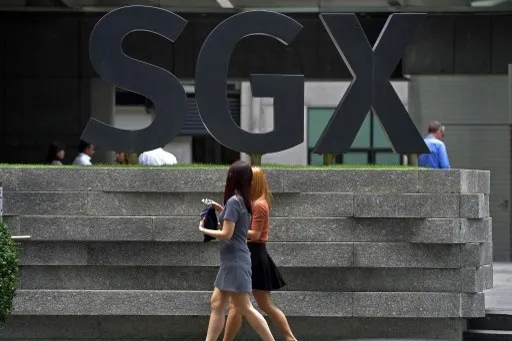
Inside the headquarters of FPT in Cầu Giấy District, Hà Nội. — VNS Photo Ly Ly Cao |
Stringent listing requirements
Many Vietnamese start-ups have grown rapidly in recent years, but some have considered listing on foreign exchanges, bypassing Việt Nam’s markets entirely.
A representative from a securities firm explained that when unicorns or companies nearing unicorn status approach them for fundraising advice, they frequently ask, "Can we secure capital in foreign markets?" rather than questioning, "Can we raise funds and list in the Vietnamese market?"
"Almost no companies set goals or have confidence that they can successfully raise funds and list within Việt Nam," the representative noted.
One notable case is Tiki Global, established in 2021 in Singapore, which then acquired 90.5 per cent of Ti Ki Co., Ltd., the operator of the Tiki e-commerce platform in Việt Nam.
In mid-2020, Tiki's CEO expressed hopes that the Government would ease listing requirements for retail technology companies. Unfortunately, Tiki ultimately had to go abroad to secure its listing and raise funds.
Prior to Tiki, several other start-ups adopted similar strategies by setting up holding companies overseas, often in Singapore or Hong Kong, before reinvesting in their domestic counterparts. Companies like Base, Cốc Cốc and Topica exemplify this trend. Presently, high-potential start-ups such as MoMo, VNPay and Sky Mavis have been unable to list in Việt Nam and are consequently seeking to raise capital from private investment funds or are opting to register abroad.
Domestic companies, particularly in the technology sector, hesitate to entertain the idea of conducting an IPO on their home ground due to the current regulatory framework, which is perceived as challenging and fraught with technical barriers that are difficult to navigate.
According to the regulations outlined in the Securities Law, companies aiming to conduct an IPO to list on the stock exchange must be profitable for two consecutive years leading up to the IPO and must not have accumulated losses by the time of the public offering, said Dr Trần Văn, former deputy head of the Finance and Budget Committee.
However, it is often difficult for technology companies to avoid accumulated losses, as they operate under a distinctive model that necessitates substantial capital investment from the outset to drive technological innovation, expand their user base and develop operational infrastructure, he added.
The Country Director for Việt Nam at Warburg Pincus, Minh Đỗ, pointed out that for technology start-ups, their future is not determined by cumulative losses at the time they seek to raise capital.
Even if they show losses, investors may still recognise their significant growth potential. For instance, one of the rare technology unicorns in Việt Nam has strong financial indicators but still reported losses in its early stages due to considerable investments in technological infrastructure and market expansion.
This reality leaves these companies with limited opportunities to go public in Việt Nam.
As a result, many experts are advocating for a relaxation or adjustment of the listing requirements on the Hồ Chí Minh Stock Exchange or the Hà Nội Stock Exchange to be more flexible.
Such changes would not only provide Vietnamese fintech companies with the opportunity to conduct an IPO at home but also reinforce the country's position as an emerging technology hub in the region, they said.
- 09:06 14/04/2025








